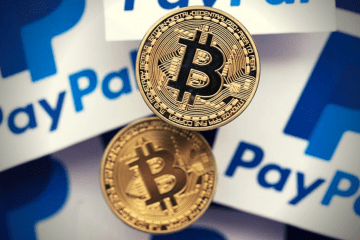Can CBDC Help Recover From Coronavirus Recession And Lead To Bitcoin?
There is a general consensus that the global economy is heading for a sharp recession. The economic output will contract, but there are, at least, certain innovations that can be implemented to mitigate the situation.
Central banks have already slashed interest rates and begun quantitative easing in the US, the UK, and the EU. But there’s something that could ease (or at least lubricate) the global financial situation even further: central bank digital currencies (CBDCs) and cryptocurrencies.
According to central banks themselves and to economists, CBDCs can make the monetary system faster and more efficient, while also increasing financial inclusion and reducing the scope for money laundering and tax evasion. At the same time, even though central banks themselves are unlikely to use decentralized cryptocurrencies, these could also play a positive macroeconomic role in the future.
CBDCs: faster, more accessible money
Back in 2016, the Bank of England published a working paper in which it detailed the macroeconomic consequences of issuing a CBDC. Most notably, it concluded that issuing CBDCs equivalent to 30% of the UK’s GDP “could permanently raise GDP by as much as 3%, due to reductions in real interest rates, distortionary taxes, and monetary transaction costs.”
And this March, the BoE published a new discussion paper, which again highlighted a variety of macroeconomic benefits likely to be delivered by a CBDC.
Given such potential advantages, the coronavirus pandemic has come at the ‘perfect’ time for CDBCs and cryptocurrencies. Cash usage has plummeted by around 50% since the lockdown in the U.K., while contactless card payments have surged in Germany.
And it’s not only the Bank of England that believes CBDCs would provide a macroeconomic boost. The Swiss Bankers Association also takes the position that CBDCs would be an overall net gain, as explained to Cryptonews.com by its head of public relations, Michaela Reimann.
“We concur that CBDC yields economic benefits,” she says. “Most notably, (i) CBCD can satisfy the need for an e-money without credit risk, (ii) CBDC can make payments faster, safer, cheaper.”
Reimann also points to other advantages, including how CBDCs could “increase financial inclusion, reduce money laundering/tax evasion.”
Such benefits would all help speed up the global economy’s efforts to recover from a lockdown-induced recession. That said, the SBA doesn’t really think that CBDCs could do much right now to avoid a recession, since the main issue isn’t money, but rather the inability of people to work.
That said, once things pick up once again, the SBA’s position is that CBDCs would help ameliorate one major problem that has been hampering the global economy for some time.
“One of the big problems of the global economy, the archaic cross-border payment system, will experience much improvement,” Reimann says.
In January, the Bank for International Settlements said that around 7 undisclosed central banks, representing 20% of the world’s population, are likely to launch CBDCs in 3 years.
Emergency vs. normal times
Unsurprisingly, such positive views aren’t shared by everyone.
“I’m not convinced of the potential benefits of CBDCs as hypothesized by the Bank of England,” says David Gerard, the author of Attack of the 50 Foot Blockchain, speaking to Cryptonews. “Anything at all ‘could’ happen.”
Still, he does remain open to the possibility that, during the current crisis, CBDCs may enable central banks to issue money more quickly.
“In this virus crisis, there’s a US proposal to ‘digital dollars’ purely as a way for the government to distribute cash quickly,” he says. “So a CBDC could play a role in an emergency, command economy. But it’s entirely unclear what benefits they bring in normal times.”
Myriad of questions
One question that remains is, assuming that CBDCs bring macroeconomic benefits, how easy would it be to implement them?
“As you can imagine, there is a myriad of details on the character and the function of CBDC on which agreement [needs] to be found. (Issuing, transaction, access, account/token-based, interest-bearing?, loss possible?),” writes Michael Reimann.
She also notes that matters of “international coordination and technical validity” would have to be agreed, as well as the “impact on and interplay with monetary policy.”
So yes, even accepting that CBDCs would be a boon, it might be some time before we see them being used widely by the world’s central banks. And by that time, the coronavirus pandemic is likely to have ended. We hope.
Stateless money
Meanwhile, cryptocurrency supporters are arguing that CBDCs might serve a gateway to Bitcoin (BTC) and other decentralized currencies, that are hard at work increasing adoption and solving scalability issues.
Naturally, blockchain and cryptocurrency skeptics such as Gerard, bankers don’t think they could bring any real macroeconomic benefit, either now or in the future.
“Cryptocurrencies like Bitcoin have no meaningful economic role,” he says. “Cryptos have a real but insignificant payment use case, and the rest is speculation.”
“Up until now and given their high price volatility, cryptocurrencies are not suited for payment purposes and neither for accounting purposes,” Reimann adds.
Also, according to Gerard, “cryptos are low-quality money” only used by people to move money past capital controls or making purchases their government doesn’t want them to. However, recent data from blockchain analytics firm Chainalysis showed that the darknet still accounts for less than 1% of all BTC transactions.
In either case, not every economist or banker takes such views.
While German bank Bayern LB is exploring Bitcoin as an alternative monetary system and is teaching its clients about it, Deutsche Bank said in December 2019 that the forces that hold the fiat money system together look fragile and, over the next decade, some of these forces could begin to unravel and demand for alternative currencies, from gold to crypto, could take off.
Also, Pete Earle, an economist with the American Institute for Economic Research, believes that cryptocurrencies could be hugely beneficial.
“I think that stateless money – by which I mean cryptocurrencies like Bitcoin – could bring tremendous macroeconomic benefits: banking the unbanked, protecting consumer purchasing power against inflation, and so on,” he says. “But states tend to be hostile to them because they are essentially uncontrollable by monetary authorities.”
On a Defiance podcast last November, Bitcoin educator Andreas Antonopoulos stressed that now we can choose between two different forms of digital cash:
- One is government-controlled, surveilled: “Imagine if you go to a protest and from that moment on, you cannot buy food at the grocery store, and that’s the future we’re marching into.”
- And the other possible future is a decentralized currency “of the people, by the people, for the people.” “Or in fact, many, many digital currencies with different degrees of privacy, different degrees of flexibility that give us choice, that are completely transnational in operation, that do not pay dues to intermediaries like banks, but they also don’t serve up our private data to governments, and most importantly, they cannot be turned off.”


